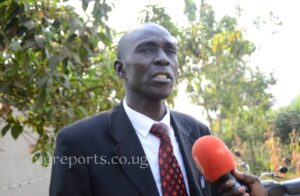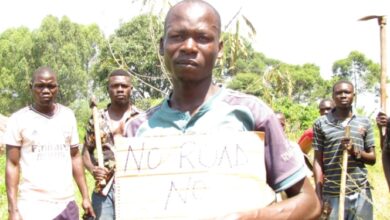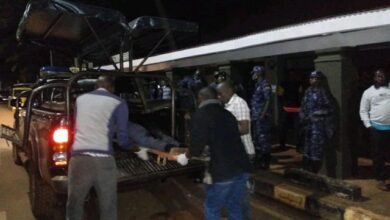Climate-smart agriculture empowers refugee women in Kiryandongo
This economic empowerment has helped reduce domestic violence, as women become more financially independent and able to support their families.

Kiryandongo: The adverse effects of climate change are impacting communities around the world, with refugee settlements among the most vulnerable. However, refugee women in Kiryandongo have taken proactive steps to combat these challenges by embracing climate-smart agricultural practices.
In Kiryandongo District, which hosts thousands of refugees, both women refugees and their host communities have been encouraged to adopt climate-resilient farming methods.
Enid Karungi, the Senior Agricultural Officer for Kiryandongo District, noted that these adaptation techniques have greatly improved agricultural practices, allowing families to cope with the effects of climate change.
Anne Nyamaine, a Refugee Response and Sustainable Energy Specialist at the Food and Agriculture Organization (FAO), explained that significant efforts have been made to build the capacity of women refugee farmers in Uganda.
In collaboration with various implementing agencies, FAO has provided refugees with agricultural support to engage in market-oriented production. This has created opportunities for local markets both within the refugee settlements and in the district and national markets.
FAO’s initiatives have equipped women with essential agricultural inputs such as quality vegetable seeds, tools, and training on sustainable farming techniques. These efforts are aimed at helping farmers improve productivity while protecting the environment. Additionally, refugees and host community members have been educated on good agricultural practices that help them adjust to unpredictable weather patterns.
The program also provides training in financial literacy, business skills, and record-keeping, empowering women to access loans that enhance their agricultural practices and overall livelihoods.
This economic empowerment has helped reduce domestic violence, as women become more financially independent and able to support their families.
Access to clean cooking technologies, such as energy-efficient stoves, and support for environmental protection initiatives have further improved living conditions for refugee women.
Recently, 13 solar-powered water pumping systems were installed in Kiryandongo to provide water for agricultural production during dry spells, which are increasingly common due to irregular seasonal patterns.
In addition to FAO’s efforts, organizations like Action Against Hunger have introduced two key farming models: the Optimized Land Use Model (OLUM) and Block Farming.
The OLUM focuses on small-scale farmers and emphasizes practices like timely planting, mulching, pest management, and organic farming. Block Farming, a more advanced model, allows farmers with larger plots to organize their land for greater production.
Joseph Goi from Action Against Hunger highlighted that gender sensitivity is central to their programs, encouraging family-based participation in farming activities. He explained that successful farmers often showcase their produce during field days, inspiring others to improve their practices.
Women refugees like Jane Sadia, who has lived in Kiryandongo for seven years, shared how the organization’s support, particularly in providing water for production, helped her overcome the challenges of dry spells.
Agnes Nabusale, an internally displaced person from Bududa, practices climate-smart agriculture on rented land, emphasizing that financial support and land access are crucial for women in refugee settings.
However, the district faces growing challenges due to population pressures on land resources. Karungi cautioned that clearing large areas of uncultivated land contributes to environmental degradation and worsens climate change.
She called for increased afforestation efforts, minimum tillage practices, and conservation agriculture to mitigate these impacts.
With the support of humanitarian organizations, refugee women in Kiryandongo are not only surviving but thriving, using climate-smart agriculture to improve their lives and their communities’ resilience to climate change.
This report was produced with support from InfoNile in partnership with Palladium under the Climate Smart Agriculture Reporting Project.
Do you have an advertisement or article you want to publish? Mail us at theugreports@gmail.com or WhatsApp +256394700683.






